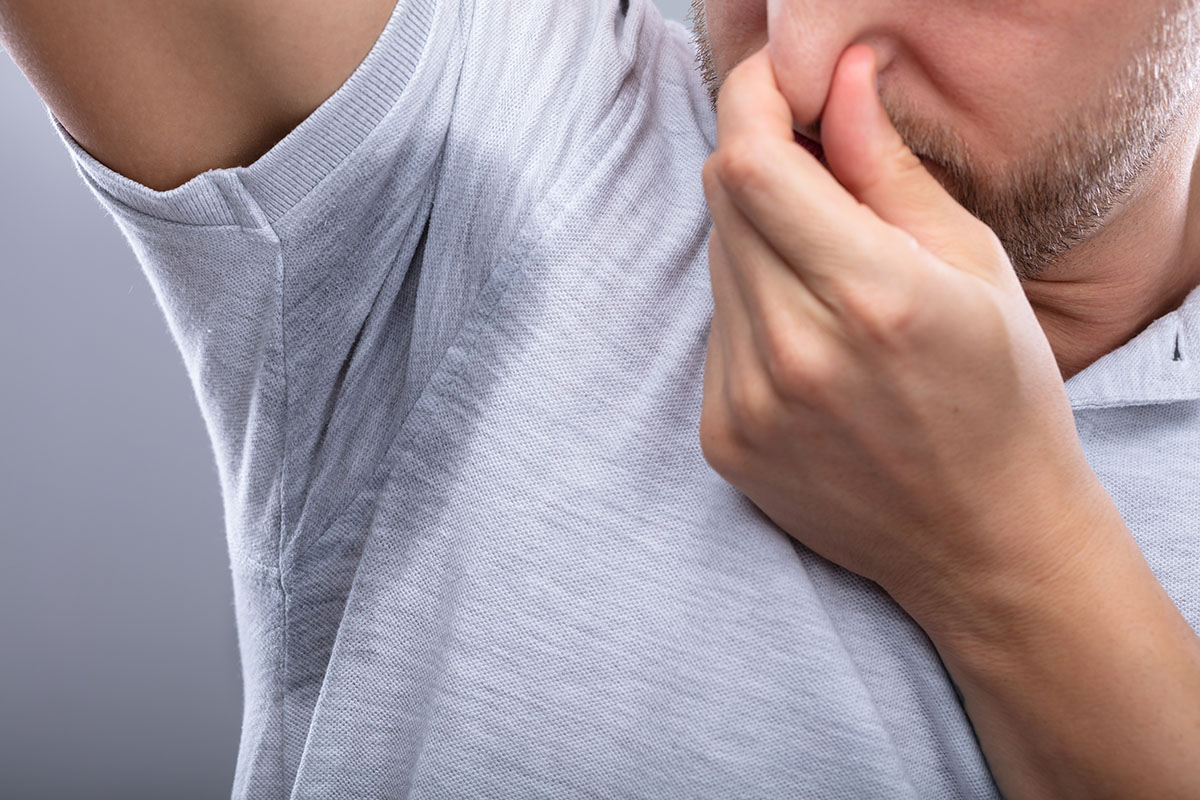Do you find yourself wondering why you sweat so much? Relax. Everyone sweats. Sweating is a normal response to heat or anxiety,” says Hunter Q. Kirkland, MD, a cardiothoracic surgeon at Cardiothoracic and Vascular Surgeons in Austin, Texas. But while sweating is the body’s way of cooling off, some people sweat excessively — sweaty armpits, sweaty necks, and sweaty, smelly feet — and for no apparent reason, making them feel as though they’re living in a sauna 24/7.
This may be due to a diagnosable medical condition called hyperhidrosis, which affects almost 4.8 percent of the population, or about 15.3 million Americans, according to research. Normally, we sweat to cool our body and control our body’s temperature. But too much sweat can cause stained shirts and body odors, affecting social relationships and even self-esteem.
According to the Mayo Clinic, hyperhidrosis (high-purr-high-DROE-sis) is abnormally excessive sweating that’s not necessarily related to heat or exercise. People with hyperhidrosis sweat so much that it soaks through their T-shirts or drips off their hands. Besides interrupting a normal life, hyperhidrosis can result in major embarrassment and social anxiety.
The most common type of hyperhidrosis is primary focal or essential hyperhidrosis, in which the nerves that trigger your sweat glands become overactive. Even if you aren’t running or hot, your feet, hands, or face will sweat.
A more serious type of abnormal sweating is called secondary hyperhidrosis, which signals a dysfunction of the central or peripheral nervous system. This type of excessive sweating is generally the result of a medical condition, including:
Diabetes
Heart attack
Infections
Low blood sugar
Menopausal hot flashes
Nervous system disorders
Some types of cancer
Thyroid problems
Though excessive sweat isn’t serious or life-threatening, it can be embarrassing and make you uncomfortable and anxious. There are medical treatments for hyperhidrosis, but you’ll need to make an appointment with your primary care physician. One study found that primary hyperhidrosis increased the risk of bacterial and fungal infections on the skin. So, if your excessive sweating seems too much, see a doctor to get back in control and avoid possible infections.
Here are seven things to know about excessive sweating — how to manage it, where it’s most common on the body, and how to tell whether you are exhibiting signs of hyperhidrosis.
Source: News365
